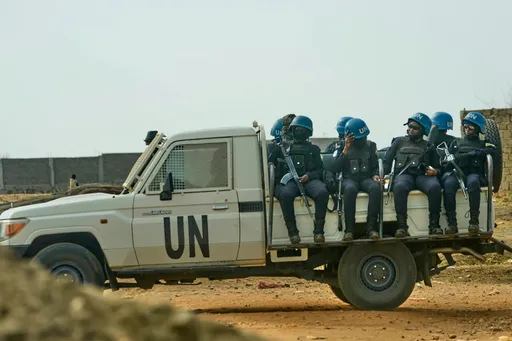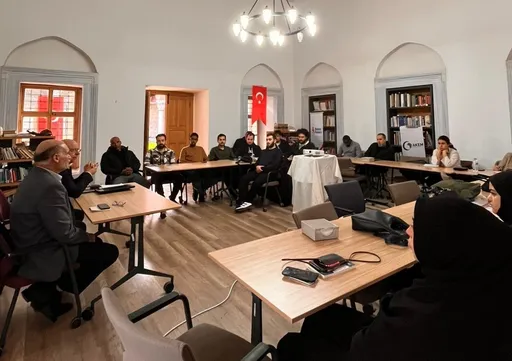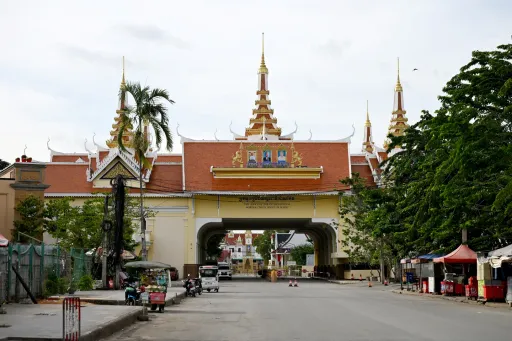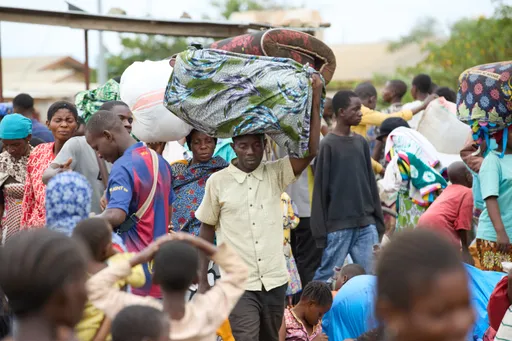By Hatem Shurab
Israel on Monday announced it was laying a total siege of Gaza, cutting off electricity and water supply and stopping flow of food and medicine to the Palestinian enclave.
Since Saturday evening Israeli jets have bombarded the Palestinian territory relentlessly, killing more than 490 people. Israeli response comes following an unprecedented incursion by Hamas fighters in Israel in which at least 700 Israelis have been killed.
Israel formally declared war on Sunday, calling in the reserves and amassing tens of thousands troops on the border with Gaza.
More than 2 million Palestinians living in the densely populated Gaza, which has been facing an Israeli blockade since 2007, fear the worst is yet to come.
Gazans, who have experienced Israeli airstrikes before, say the thuds and shaking caused by the falling bombs this time are more intense and frightening.
There’s only one thing on the mind of the Palestinians - to seek safety. But how?
No place to hide
“A nearby building was destroyed by an Israeli air strike. Our home was partially damaged,” Tala Alghosain, 20, a resident of Gaza’s Sabra neighbourhood, told TRT World.
“It felt like stones and shrapnel were falling over our heads. Windows shattered and the walls cracked. I am terrified!”
Alghosain, a dentistry student, said she was supposed to be studying over the weekend but now it seems to her that the normal life she knew has ended.
“We are all huddled in the corridor of our apartment. It’s the only place with walls all around it. There’s no other shelter,” she said over the phone as loud bangs of explosion reverberated in the background.
“Feels like an earthquake.”
As in the past, the Israeli military calls occupants of buildings that it plans to hit and asks them to evacuate. But they have a few minutes to run out with few belongings. And such precautions to avoid civilian casualties don’t always work.
“Some people were warned before being hit but others were just bombed with families inside,” said Alghosain.
Palestinian officials say among the hundreds of people killed in Gaza are entire families with multiple generations wiped out in Israeli bombings.
“An airstrike hit a house in southern Gaza without any warning. The entire family was killed except one poor girl. Her name is Tala Abu Dagga. This is one example of how terrible this war is,” said Alghosain.
“I lived through several wars in Gaza since my early childhood. This one seems to be the worst.
“Nights are what I fear the most because that’s when the bombings intensify. We never sleep well. If we try, we keep waking up from the sound of explosions.”
A grandmother’s fear
Majda Thabit, a 76-years-old grandmother, who was expelled with her family during Nakba in 1948 had lived through several conflicts including the 1967 Six-Day War when Israel occupied Gaza.
“I have never experienced such intensity of attacks. Boom, boom, boom, that's all that we hear!” she told TRT World.
Thabit, who suffers from diabetes and heart problems said, “I am a grandmother of many grandchildren. They all prefer to stay in my home close to me. They feel safer here. I choose the safest room in the house and we all stick together. It’s like 10 people in one room.”
“When the bombing started, my son rushed to the bakery and brought some extra bread and some flour. Luckily,a day before the attacks I had a routine health checkup and got my medicine. I fear if the war goes on for long we will run out of bread, flour and medicine.”
In the past years whenever fighting broke out, the Israeli airstrikes picked up pace gradually - giving residents time to gather supplies.
“We don’t get out of home at all. It’s scary outside," Thabit explained. “They are hitting not only the buildings but also cars in the streets, also mosques have been targeted. So it’s not safe at all. You never know what will be hit next.”
Sleepless nights
Majd Shurrab, 15, said his family was lucky to buy readymade meals and snacks from a local supermarket right before the Israeli bombing started.
“My mother won’t be able to cook anything in such a tense situation,” he told TRT World.
Shurrab, who lives in the Al Rimal neighbourhood, said Sunday night was really tough for his family with continuous Israeli airstrikes.
“I couldn’t sleep. A police station in our neighbourhood was bombed. The sound of the explosion is louder than any bombs I have heard before.”
“Me and my sister have a tactic to overcome the fear. We cover our ears really hard when we hear approaching F-16 jets or missiles. Sometimes it works, sometimes we don’t even get the chance to block the sound because of the suddenness of the attacks,” said Shurrab.
“What is new about this war is that when air strikes happen, they all hit at once, so we hear later that different homes were targeted at the same time.”
























